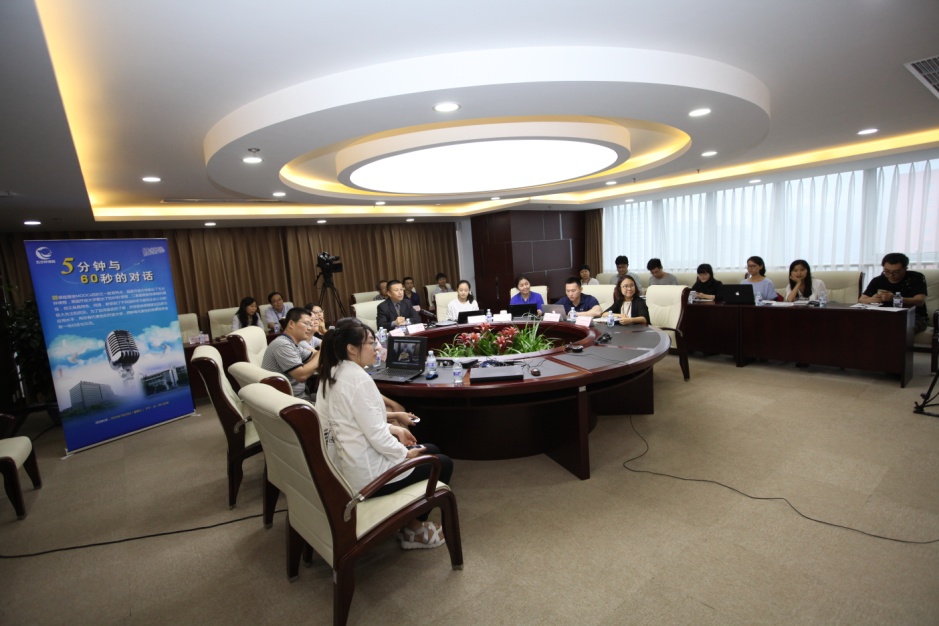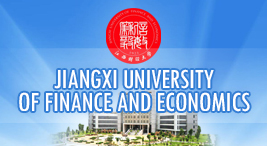Open University opens to global experience
As a video-conferencing seminar commenced in a conference room on the 11th floor of The Open University of China headquarters in Beijing, the city was suffering from one of the heaviest downpour in years. Flights were canceled; roads were inundated. Even an orange alert, the second-highest in a four-tier system, was issued by the local meteorological office.
In the other side of the globe, around 12,300 kilometers away at the Milton Keynes in Buckinghamshire, England, another group of representatives from The Open University, UK were having equally unusual weather—it was bright and sunny.
Despite the uncharactistically extreme weather for both parties, the two-hour discussion went smoothly as both sides exchanged ideas on how to promote Internet-based learning through videos clips.
 |
|
Representatives from The Open University of China, in Beijing, chat with their counterparts at The Open University, UK in Buckinghamshire via Skype on July 20. [Photo by Yu Zhangli/The Open University of China] |
After MOOCs, or Massive Open Online Courses, an online course aimed at unlimited participation and open access via the Internet, surged in popularity a few years ago, The Open University of China — a new style of university without walls and open to all — began testing its own program for open e-learning called "Five Minute Micro-Lecture" in October of 2012.
Five Minute Micro-Lecture
The Five Minute Micro-Lecture project aims to integrate new technology and modern education, said Zhang Rong, a member of the Learning Resources Department, in the opening presentation. She added that the short videos can "adapt to students' learning needs".
All the videos included interactive videos are just like individual building blocks, but each episode contains clear learning objectives, strategies, and assessment, Zhang said.
On its official website (en.ouchn.edu.cn), The Open University of China's top video is an 11-minute piece called "The story of Glaciers" with 48,677 views. The documentary-like video touches upon the formation, function, and future of glaciers, ending with a warning to combat global warming to save the glaciers.
"We have made a total of 18,921 episodes of similar videos over the past three years," Zhang said, "the total run time adds up to about 114,000 minutes."
The total hours astonished the team of the "60 Second Adventures" series from the UK. Andrew Law, director of the open media unit at The Open University, UK, said that number is "gigantic".
"All the videos are original," explained Chen Haishan, deputy director of the International Exchange and Cooperation Center at The Open University of China, adding that "we have exclusive teams and publishers to work on that."
The mini-lectures are on a diversified mix of subjects, covering literature, technology, and education to language, politics, and agriculture.
Exchanges with UK counterparts
For the UK team in charge of the "60 Second Adventures" series, speaker Andrew Law said that their goals has been "advancement and dissemination of learning and knowledge...to promote the general well-being of the community."
"The 60 seconds are just a highlight," Chen Haishan said, "they are used to attract online learners to pay for the whole lectures."
The UK team paid a lot of attention to their brand and image, explained Chen.
In the question and answer session of the seminar, senior producer Catherine Chambers and Rachel Yu from the international unit at The Open University, UK answered questions about the future development strategy of the series. They also talked about the originality of video content—animations, not real footage—and picture design.
As for the channels for lecture distribution, Andrew also shared about their experience in cooperation with iTunes, Kindle, BBC Open Learn, and commercial live-stream sites, such as YouTube.
"This seminar offers a great opportunity for both sides to learn from each other," said Zhang Shaogang, vice president of The Open University of China.
He called for broader learning from other open universities, not only in the UK but also in Australia and other countries.
However, E-learning is not without its shortcomings, obstacles, and critics. Zheng Shaohong and Kang Ping, professors from Zhejiang Radio and Television University, recently wrote an article Construction of Microlearning Resources in Open University: Progress, Problems and Countermeasures, analyzing programs like the Five Minute Micro-Lecture series.
The professors say each academic course should embrace a complete system of knowledge. Micro-lecture videos provide fragmented material and focus on only certain, random parts, but often don't provide a systematic whole picture.
Wu Yaqi contributed to this story.


















